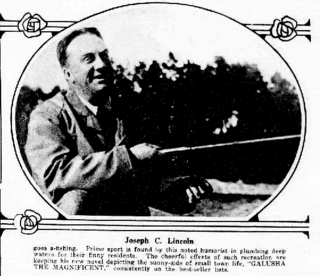A Quote by Edward Said
Captain Ahab was a man possessed with an obsessional drive to pursue the white whale which had harmed him - which had torn his leg out - to the ends of the Earth, no matter what happened. In the final scene of the novel, Captain Ahab is being borne out to sea, wrapped around the white whale with the rope of his own harpoon and going obviously to his death. It was a scene of almost suicidal finality.
Related Quotes
It was like the first time I'd ever seen Hollywood just really not do the right thing. We filmed Free Willy in Mexico. I'd come in a really nice car from my hotel, and we'd have to drive around all the crew that was sleeping in the parking lot. People making their breakfast on the ground. It was because there was a whale there that was in a little tank. It just felt gross. It felt really bad. They didn't free that whale for, damn... at least 10 years later. The poor whale had horrible psoriasis all over him, and his fin didn't work.
This soldier, I realized, must have had friends at home and in his regiment; yet he lay there deserted by all except his dog. I looked on, unmoved, at battles which decided the future of nations. Tearless, I had given orders which brought death to thousands. Yet here I was stirred, profoundly stirred, stirred to tears. And by what? By the grief of one dog. Napoleon Bonaparte, on finding a dog beside the body of his dead master, licking his face and howling, on a moonlit field after a battle. Napoleon was haunted by this scene until his own death.
There was no magic encounter for me with a whale in the ocean; no being zapped by a whale as I snorkelled in their world. Nothing visible or capable of explanation. In fact, I'd never seen a whale. When I first witnessed their terrible death agony, I couldn't get the picture of a whale being harpooned out of my mind. It was a hideous mind-blowing sight. That day I recognised a purpose on the journey of my life.
I can't turn around without hearing about some 'civil rights advance's White people seem to think the black man ought to be shouting 'hallelujah's Four hundred years the white man has had his foot-long knife in the black man's back — and now the white man starts to wiggle the knife out, maybe six inches! The black man's supposed to be grateful? Why, if the white man jerked the knife out, it's still going to leave a scar!
Whether the type of old sea captain that I have portrayed in my stories is gone forever, is a question. Certainly each summer I find that the ranks have perceptibly thinned. The longshore captain is still there, many of the men who are not any older than myself, but their viewpoint is not that of a man who sailed his square rigged ship out one morning with China as his destination.
Fireheart tensed, waiting for whatever had hunted down these apprentices to emerge from the trees and attack, but nothing stirred. Feeling as if his legs hardly belonged to him, he sprang down and stumbled across to Swiftpaw. The apprentice lay on his side, his legs splayed out. His black-and-white fur was torn, and his body was covered with dreadful wounds, ripped by teeth far bigger than any cat's. His jaws still snarled and his eyes glared. He was dead, and Fireheart could see that he had died fighting.
The doctors take the bodily evidence as the disease. . . . disease is itself an impudent opinion. He throws off the feelings of the sick and imparts to them his own which are perfect health, and his explanation destroys their feelings or disease. . . . He is like a captain who knows his business and feels confident in a storm, and his confidence sustains the crew and ship when both would be lost if the captain should give way to his fears.
Atten. Pray of what disease did Mr. Badman die, for now I perceive we are come up to his death? Wise. I cannot so properly say that he died of one disease, for there were many that had consented, and laid their heads together to bring him to his end. He was dropsical, he was consumptive, he was surfeited, was gouty, and, as some say, he had a tang of the pox in his bowels. Yet the captain of all these men of death that came against him to take him away, was the consumption, for it was that that brought him down to the grave.





































